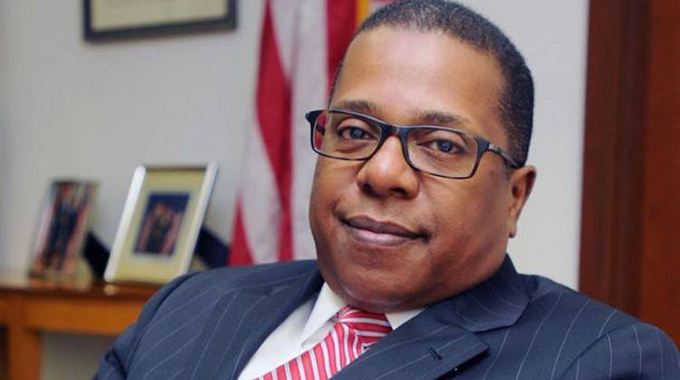Families spend more than two decades as Mbare destitutes

PICTURE 20 people, including adults and toddlers, living together at a bus terminus without warmth, privacy and access to water and sanitary facilities.
Flies hover around human waste, while a heavy stench greets anyone who dares draw closer to their makeshift home.
But occupants there take each day lived as a blessing and even have plans for the future.
This is what First Lady Auxillia Mnangagwa came face-to-face with during her visit to Mbare Musika in Harare where she was leading the monthly clean-up campaign.
The First Lady nearly came to tears at the sight of the four families, who have called the bus terminus home for between 23 and 29 years.
Their tales of challenges and constant visits by death did not make life easy for the First Lady, who immediately summoned them to her office to see how best she can assist them.
Apart from the lack of hygiene, the women have come to accept frequent physical and sexual attacks as part of life.
One boy (name withheld), who says he is 15 years old, has difficulties walking after being sodomised by a “Good Samaritan” who lured him to Fife Avenue Shopping Centre on the pretext he wanted to offer financial assistance and food.
He was sodomised by the “Good Samaritan” in his car and contracted a sexually-transmitted infection that has not healed.
His wish is to get a birth certificate and go back to school having dropped out of school when he was in Grade Three following the death of his mother.
The boy does not know his father.
Pauline Sithole (33), who started living at the terminus when she was four-years-old, narrated how she lost her two children to the cold and cholera within a year during which she also lost her mother.
But how did she come to live at the terminus?
“I came here with my parents from Mozambique when I was four-years-old together with my two brothers who are older than me,” said Pauline.
“That is when we started living here until my parents separated and my father disappeared.
“We never heard from him up to now. Our life is all about begging. I have five siblings and we all do not have identity documents and we never went to school.
“We had our children in the streets and God had blessed me with three children, but two of them died.”
Pauline paused for a moment while holding back her tears before continuing after gaining strength.
“Sometime in 2017, I can’t remember the exact month, but it was cold on the day, I woke up and left my children sleeping while I prepared porridge for them outside the shack,” she said. “After some few minutes, I went back inside to wake them up so that I feed them before going to beg.
“I was shocked when my three months old baby was lying unresponsive. He was dead, though he had not showed any signs of sickness.”
Pauline broke down while narrating her ordeal.
While she was still recovering from the loss of her son, Pauline lost another child who was one and half years old.
“He had a running stomach for three days and died,” she said. “We suspected it was cholera. The Harare City Council assisted us in burying my children. My mother also died the following year.”
Pauline said the children do not have birth certificates.
“We are so many, just that some have already gone in the streets to beg and my brothers sometimes get piece jobs,” she said. “Even our children do not have birth certificates. If only the Government can intervene and assist us to get identity documents.
“Of all the children you see here, only one, my child, is going to school and an organisation called Mashambanzou is assisting me with school fees. My husband is mentally challenged, not that he was born like that, but it just started when we were already married.”
Pauline’s younger sister, Nozipa (23), has three children and one of them aged 11 is disabled.
The child cannot walk or talk.
“We just take each day as it comes and we are grateful to God for the gift of life, though life has been hard for us,” she said. “We grew up here and I had my children here also, though I do not know where their fathers went.
“It’s not easy for me to go and beg in the streets because my son needs special attention because of his condition. I am also pleading for a wheelchair, but now that Amai has visited us, our problems have been solved, we know she is a loving and caring mother and we have faith that she is going to assist us.”
Nozipa said men take advantage of them while they are begging, adding that even their children sometimes are abused by men in exchange of food.
Revai Bhatison (44) said she joined the Sithole family in the streets in 1997 after her divorce from her husband.
“I was kicked out without anything and went to my parents in the rural areas, but life was hard there because since I was the breadwinner, I was now finding it difficult to take care of my parents and my children,” she said.
“I decided to come back to Harare and ended up in the streets fighting for survival. I have five children and I gave birth to three of them at this rank. Their fathers just disappeared.”
The families thanked the First Lady for her kindness and love.
Amai Mnangagwa, who is the patron of Angel of Hope Foundation, has been giving hope to the hopeless around the country and yesterday she gave the families a shoulder to lean on while they cried for help.
She invited them to her office and promised to assist them in any way possible.
“I want you to come to my office. I will send someone to pick you up so that we sit down and see how best I can help you,” said the First Lady. “I am really touched. Magariro akadai especially nevana haana kunaka zvachose.”










Comments